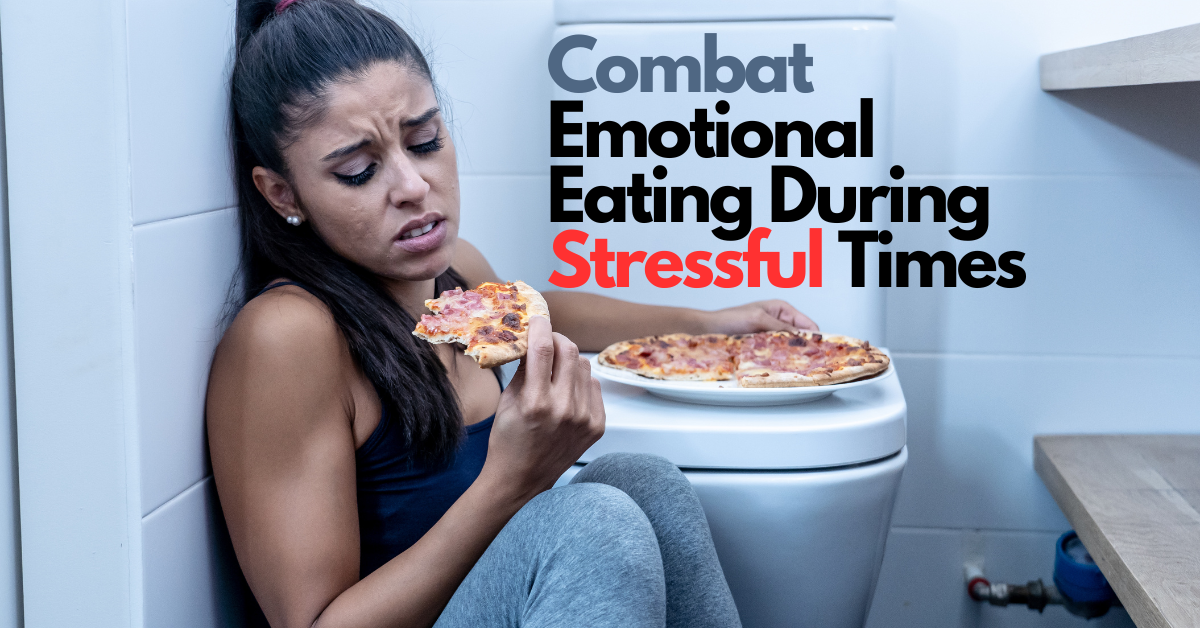Most of us have been guilty of turning to food for comfort during times of stress. When faced with overwhelming emotions, it’s common to seek solace in the form of snacks and treats. However, emotional eating can lead to unhealthy patterns and weight gain if not addressed. In this blog post, we will explore effective strategies to combat emotional eating during stressful times, helping you maintain a healthy relationship with food even when life feels overwhelming.
Identifying the Factors of Emotional Eating
Before we can address emotional eating effectively, it’s crucial to identify the factors that contribute to this behavior. By understanding the root causes of emotional eating, we can develop strategies to combat it and improve our overall well-being. Recognizing these factors is the first step towards breaking free from the cycle of emotional eating.
Psychological Aspects
Identifying the psychological aspects that contribute to emotional eating is imperative in combating this behavior. Stress, anxiety, depression, and low self-esteem are common triggers for emotional eating. Individuals may use food as a coping mechanism to deal with difficult emotions or to seek comfort during challenging times.
Environmental and Social Influences
Eating habits are heavily influenced by our environment and social interactions. Factors such as the availability of food, social gatherings, and cultural norms can all play a role in emotional eating. For example, being surrounded by unhealthy food choices or engaging in frequent social eating events can increase the likelihood of turning to food for emotional comfort.
Recognizing the impact of our surroundings and social circles on our eating habits is crucial in addressing emotional eating patterns and establishing healthier behaviors.
Practical Tips to Combat Emotional Eating
Even in times of stress, it is possible to combat emotional eating with the right tools and strategies in place. By implementing practical tips, individuals can regain control over their eating habits and maintain a healthy relationship with food.
Mindful Eating Techniques
Any individual looking to combat emotional eating can benefit from incorporating mindful eating techniques into their daily routine. By paying attention to the sensory experience of eating, such as the taste, texture, and smell of food, individuals can become more aware of their hunger cues and distinguish between physical and emotional hunger. This practice can help individuals make more conscious choices about what and when to eat, leading to a more balanced and fulfilling relationship with food.
Establishing Healthier Coping Mechanisms
On the journey to combat emotional eating, establishing healthier coping mechanisms is key. By identifying triggers that lead to emotional eating, individuals can develop alternative strategies to cope with stress, anxiety, or other emotions that commonly drive them to seek solace in food. Healthy coping mechanisms can include activities like exercise, journaling, meditation, or talking to a therapist. By replacing emotional eating with these healthier options, individuals can build resilience and learn to navigate difficult emotions without turning to food for comfort.
Emotional eating can be a challenging habit to break, especially during stressful times. However, with the right mindset and practical strategies in place, individuals can overcome emotional eating patterns and cultivate a healthier relationship with food.
Creating a Supportive Environment
Building a Positive Support Network
Now, one of the imperative strategies to combat emotional eating during stressful times is to build a positive support network. Surround yourself with people who uplift and encourage you. This can be friends, family members, or even online support groups. Having a strong support system can provide you with the encouragement and accountability you need to overcome emotional eating triggers.
Redesigning Your Food Environment
On top of building a positive support network, it’s crucial to redesign your food environment to avoid temptation. Keep unhealthy snacks out of sight and stock your kitchen with nutritious options. Make it easier to choose healthy foods by prepping meals and snacks in advance. Consider organizing your pantry and fridge in a way that makes healthier choices more convenient.
The way you structure your food environment can have a significant impact on your eating behaviors. By making healthy foods more accessible and removing triggers for unhealthy choices, you can set yourself up for success in managing emotional eating during stressful times.
The key is to create an environment that supports your goals and makes it easier for you to make nourishing choices, even when faced with stress or emotional triggers. Take the time to set up your surroundings in a way that promotes positive eating habits and empowers you to overcome emotional eating tendencies.

Long-Term Strategies for Managing Stress
Integrating Regular Physical Activity
You can combat the effects of stress by incorporating regular physical activity into your routine. Exercise has been shown to reduce stress hormones in the body and release endorphins, which are chemicals that act as natural painkillers and mood elevators. Aim for at least 30 minutes of moderate exercise most days of the week, whether it’s walking, jogging, yoga, or any activity you enjoy. This not only helps improve your physical health but also contributes to your mental well-being.
Seeking Professional Help When Needed
Integrating professional help when needed is crucial in managing stress effectively. If you find that your stress levels are overwhelming and impacting your daily life, don’t hesitate to seek support from a therapist, counselor, or mental health professional. Therapy can provide you with coping strategies, tools, and a safe space to explore and address the root causes of your stress. Bear in mind, seeking help is a sign of strength, not weakness.
Help from a professional can offer valuable insights, techniques, and support that are tailored to your individual needs. They can assist you in developing healthier coping mechanisms, managing your emotions, and building resilience in the face of stressful situations. Don’t hesitate to reach out for assistance when you need it.
Final Words
Following this guide on how to combat emotional eating during stressful times can help you regain control over your eating habits and manage your emotions more effectively. Remember to practice mindfulness, engage in healthy coping mechanisms, and seek support when needed. By implementing these strategies consistently, you can break the cycle of emotional eating and develop a healthier relationship with food, even during the most challenging times.
References
- “Emotional Eating: Causes, Prevention, Treatment, and Resources” by Lynn Rossy, PhD – This book delves into the psychology behind emotional eating and provides practical strategies for overcoming it.
- “The Emotional Eater’s Repair Manual: A Practical Mind-Body-Spirit Guide for Putting an End to Overeating and Dieting” by Julie M. Simon – This book offers a holistic approach to dealing with emotional eating, addressing the underlying emotional issues that drive the behavior.
- “Mindful Eating 101: A Guide to Healthy Eating in College and Beyond” by Susan Albers, PsyD – While specifically targeted at college students, this book provides valuable insights and techniques for practicing mindful eating, which can help combat emotional eating.



